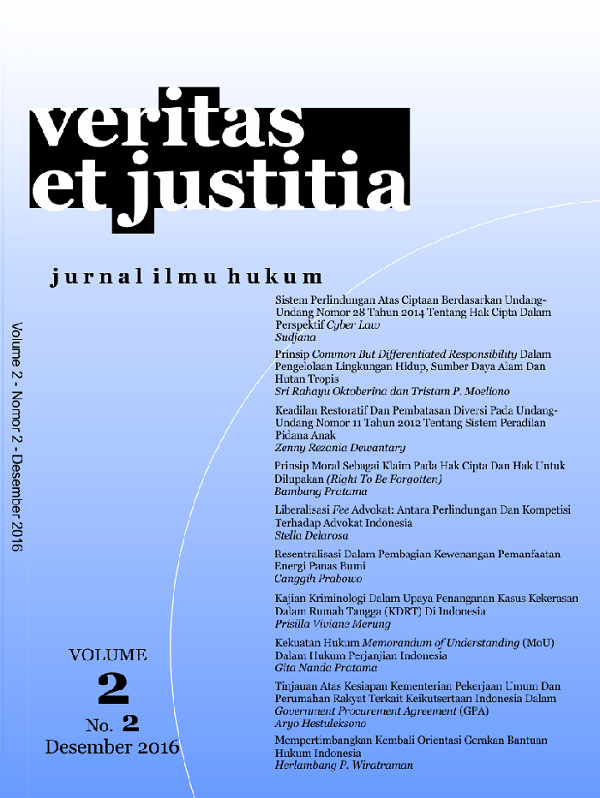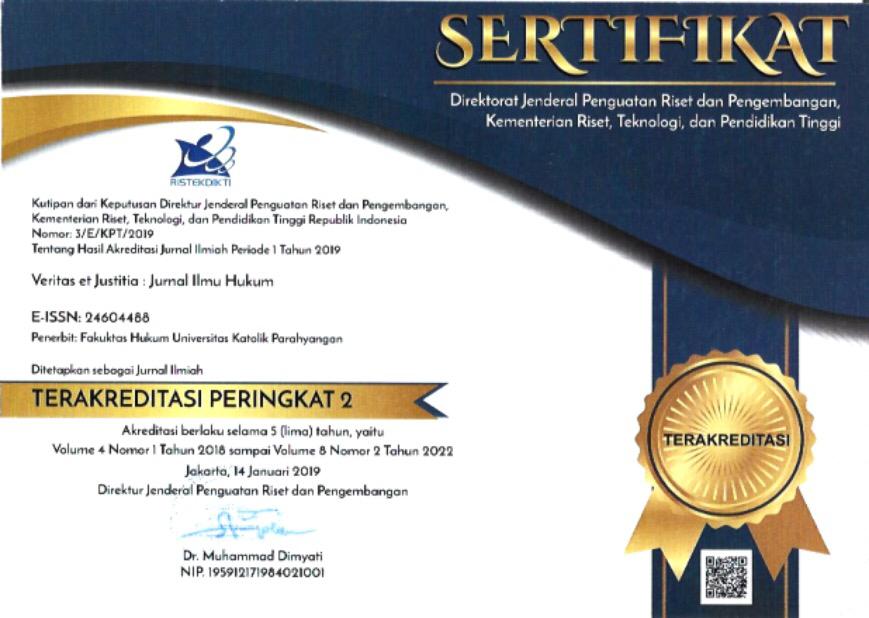Prinsip Moral Sebagai Klaim Pada Hak Cipta Dan Hak Untuk Dilupakan (Right To Be Forgotten)
DOI:
https://doi.org/10.25123/vej.v2i2.2270Keywords:
copyright, personal right, data privacy, moral principleAbstract
Abstract
In this current digital era, the issue how to protect private-personal electronic or digital data creates the need for the recognition of a new legal right (right to be forgotten/right to delete). Legal recognition of this right must be balanced with the duty of internet service provider to control and monitor the dispersion of negative content (resulting in copyright infringements, infringements of the sanctity of personal-private data, etc.). With the amendment of Law No. 11 of 2008 re. Electronic Information and Transactions, it becomes appropriate to discuss the right to be forgotten in terms of moral principles. The existence of this moral right is reflected in the legal protection of copyright as well as protection of private-personal data. The main argument here is that moral principle or right as part of natural law should be used to explain the existence and importance of the right to be forgotten.Downloads
Published
Issue
Section
License
Authors who publish with this journal agree to the following terms:
Authors retain copyright and grant the journal right of first publication with the work simultaneously licensed under a Creative Commons Attribution License that allows others to share the work with an acknowledgement of the work's authorship and initial publication in this journal.
Authors are able to enter into separate, additional contractual arrangements for the non-exclusive distribution of the journal's published version of the work (e.g., post it to an institutional repository or publish it in a book), with an acknowledgement of its initial publication in this journal.
Authors are permitted and encouraged to post their work online (e.g., in institutional repositories or on their website) prior to and during the submission process, as it can lead to productive exchanges, as well as earlier and greater citation of published work.
The Journal allow the author(s) to hold the copyright and to retian publishing rights without restrictions.










